At Master Packing and Rubber Company (MPRC), we’ve provided solutions to some of the most challenging seal applications for over 40 years. This extensive experience enables us to manufacture custom gaskets for virtually any customer specification. Send us your gasket drawing, design file, or photo with dimensions, and our experts will deliver a component that meets your needs.
Learn more about the types of custom cut gaskets we make, why we don’t use dies, and how to choose the best gasket material for your application.

Types of Custom Gaskets at MPRC
MPRC can custom manufacture gaskets out of various materials depending on requirements such as chemical compatibility, temperature resistance, operating pressures, required lifespan, and environmental factors.
The team at MPRC offers a range of custom seal capabilities. We can produce seals that are lathe cut, extruded, spliced, or molded to accommodate any style or type of sealing solution you might need for your application.

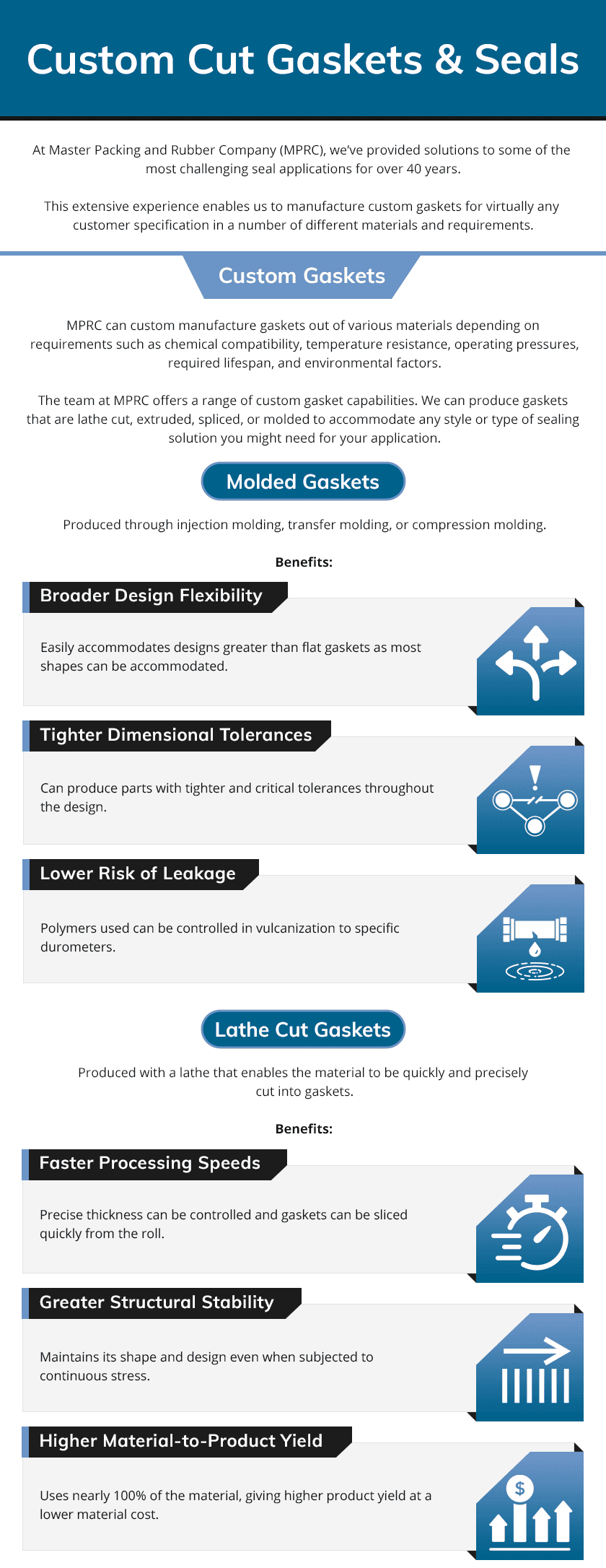
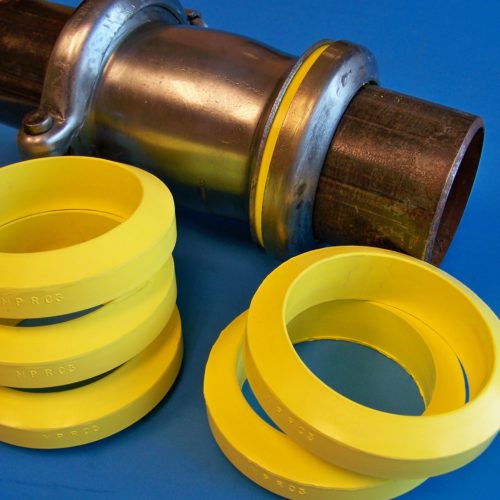
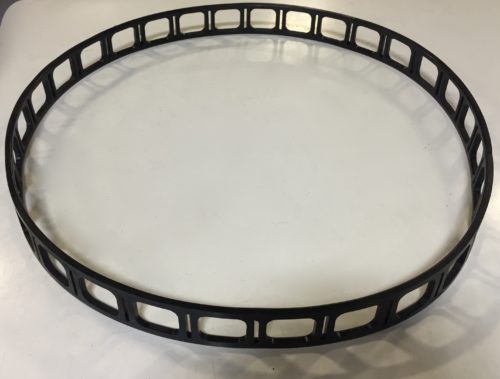
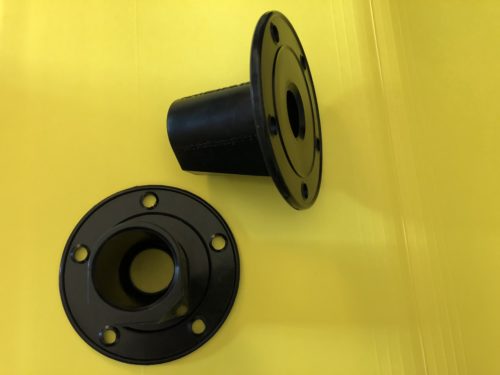
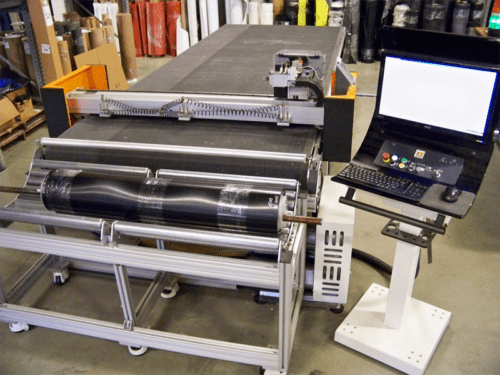
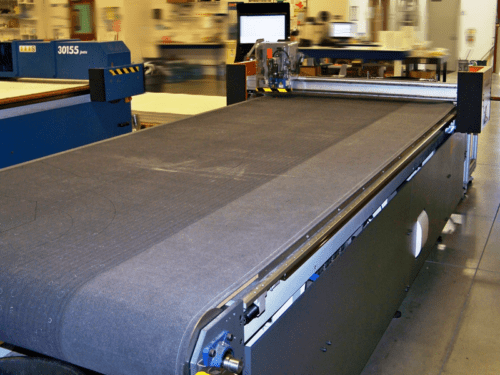
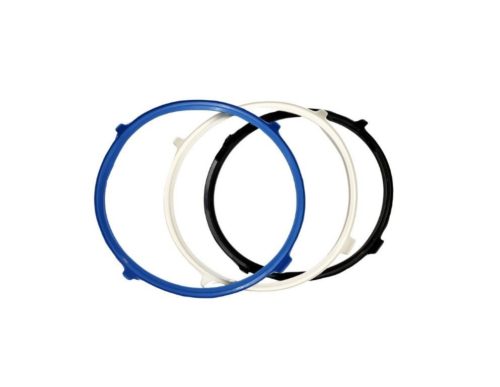
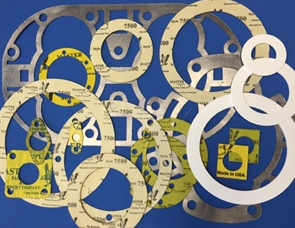 MPRC: Your Trusted Custom Gasket Manufacturer and Supplier
MPRC: Your Trusted Custom Gasket Manufacturer and Supplier